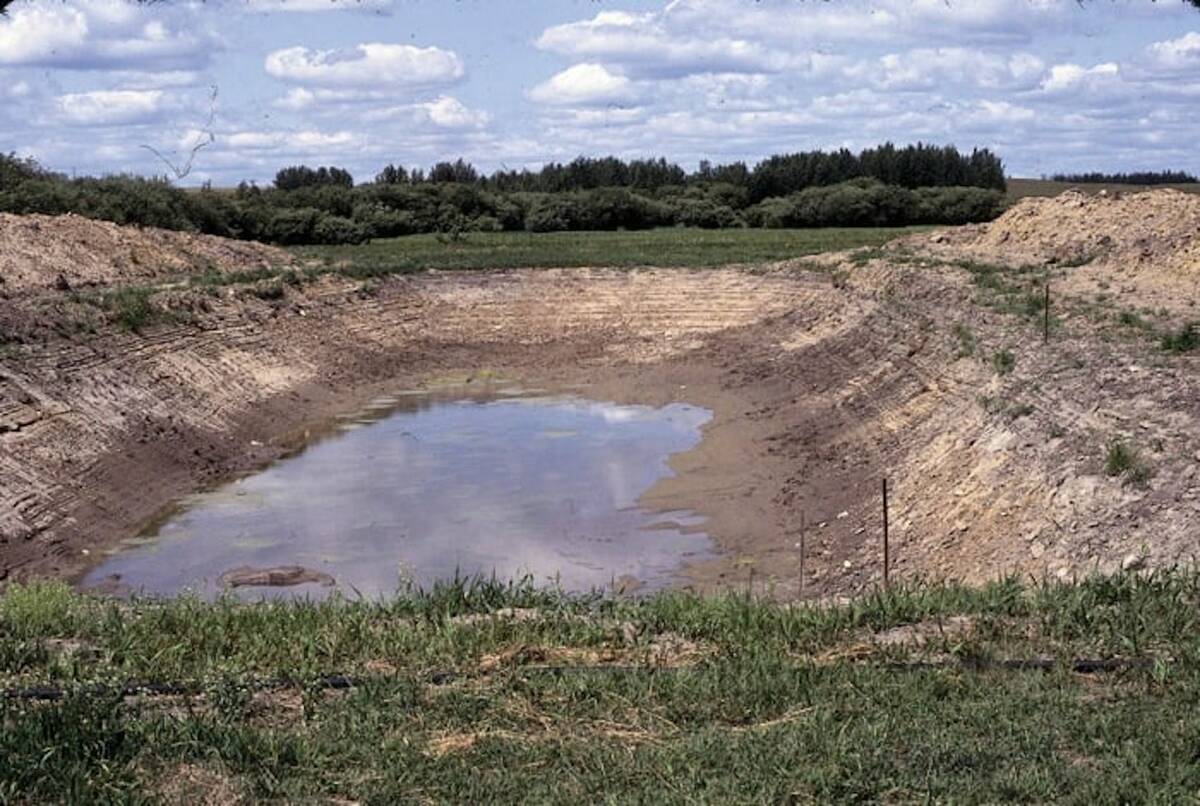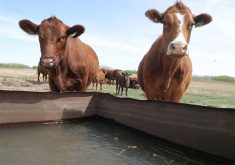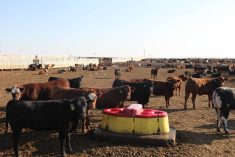The Canadian Cattle Identification Agency has agreed to grandfather all bar code tags for cattle older than 30 months after concerns from across the country about the cost of adding an electronic tag.
Some cattle are now double tagged because it is illegal to remove ear tags.
Bar code tags will be recognized until Dec. 31, 2007 and mature animals already wearing the old style will be recognized indefinitely, said Erin Martiniuk of the agency.
“We strongly recommend all cattle be moved to (radio frequency identification) tags,” she said.
Read Also

Dry summer conditions can lead to poor water quality for livestock
Drought conditions in the Prairies has led to an decrease in water quality, and producers are being advised to closely monitor water quality for their animals.
The RFID tags will have a different number from the bar codes and it must be reported to the identification agency and records maintained for any cattle retagged because tags were lost.
The policy changes came into effect Sept. 24.
In addition, the Canadian Food Inspection Agency requires all cattle to be tagged before leaving their farm of origin, including those going to community pasture, exhibitions, test stations or veterinary clinics.
Pastures must be registered and records are required on the origin of cattle coming to pasture. There are no more exemptions for community pastures. All cattle leaving the herd of origin must be tagged even if they are eventually returning to that herd.

















